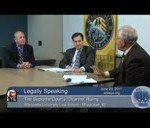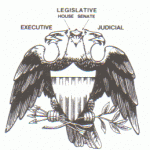Ozanne v. Fitzgerald: Haste Makes Waste
 On June 23, I participated in a discussion concerning the Wisconsin Supreme Court’s decision in Ozanne v. Fitzgerald, 2011 WI 43, on the Wisconsin Eye public affairs show “Legally Speaking.” Rick Esenberg and I continued our ongoing difference of opinion regarding this litigation, which seems to generate an endless supply of novel and contentious legal questions. You can view the program at this link.
On June 23, I participated in a discussion concerning the Wisconsin Supreme Court’s decision in Ozanne v. Fitzgerald, 2011 WI 43, on the Wisconsin Eye public affairs show “Legally Speaking.” Rick Esenberg and I continued our ongoing difference of opinion regarding this litigation, which seems to generate an endless supply of novel and contentious legal questions. You can view the program at this link.
My criticisms of the unusual procedural posture of the case, and of the lack of wisdom exhibited by the four member majority’s rush to resolution, are fully stated in the video.
For the remainder of this post, I would like to expand on my criticism of the majority’s legal conclusion that the legislature lacks the power under the State Constitution to submit itself to the jurisdiction of the courts under the Open Meetings Law.


